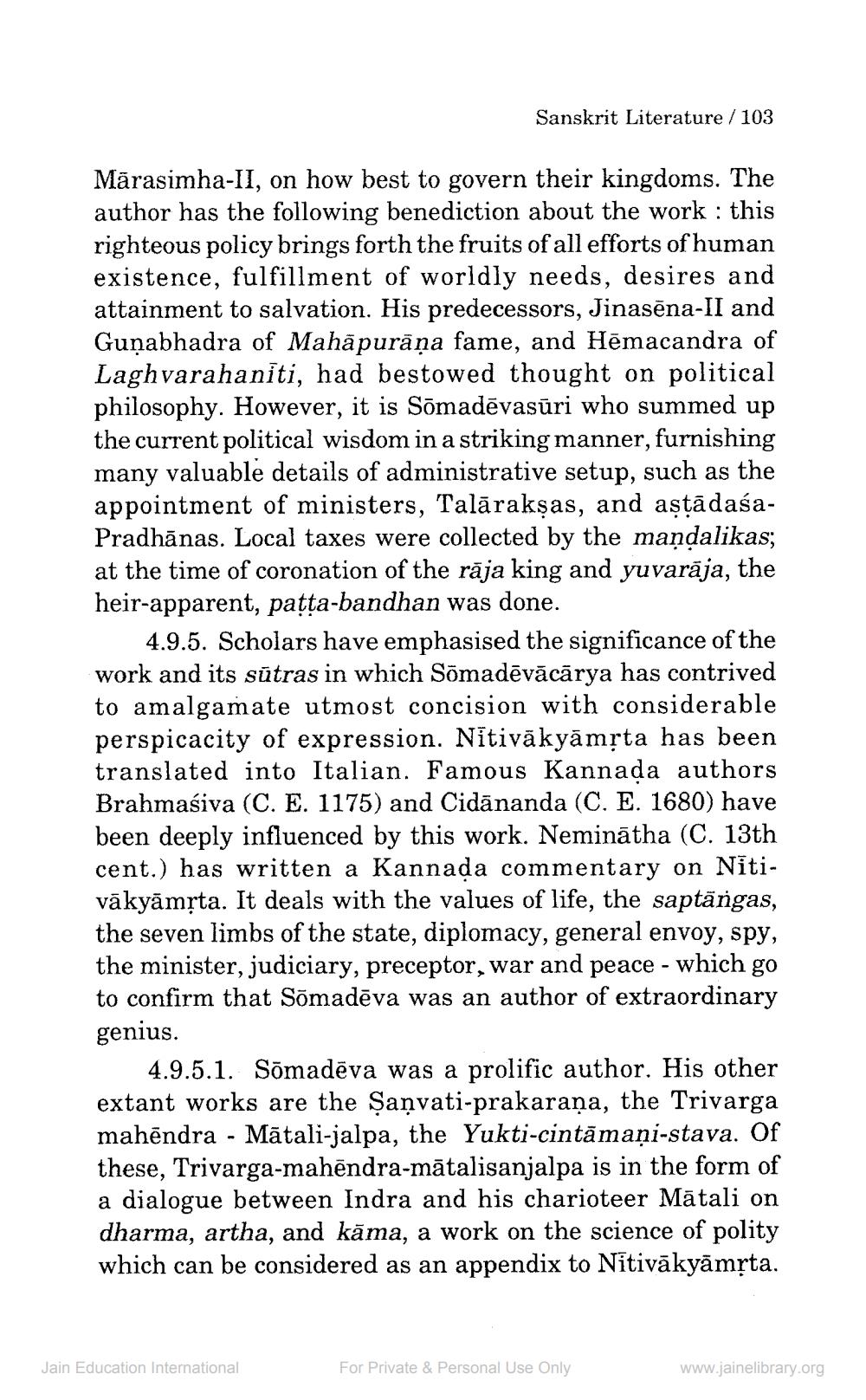________________
Sanskrit Literature / 103
Mārasimha-II, on how best to govern their kingdoms. The author has the following benediction about the work : this righteous policy brings forth the fruits of all efforts of human existence, fulfillment of worldly needs, desires and attainment to salvation. His predecessors, Jinasēna-II and Guṇabhadra of Mahāpurāņa fame, and Hēmacandra of Laghvarahaniti, had bestowed thought on political philosophy. However, it is Somadēvasūri who summed up the current political wisdom in a striking manner, furnishing many valuable details of administrative setup, such as the appointment of ministers, Talāraksas, and astādaśaPradhānas. Local taxes were collected by the mandalikas; at the time of coronation of the rāja king and yuvarāja, the heir-apparent, patta-bandhan was done.
4.9.5. Scholars have emphasised the significance of the work and its sūtras in which Somadēvācārya has contrived to amalgamate utmost concision with considerable perspicacity of expression. Nitivākyāmộta has been translated into Italian. Famous Kannada authors Brahmasiva (C. E. 1175) and Cidānanda (C. E. 1680) have been deeply influenced by this work. Neminātha (C. 13th cent.) has written a Kannada commentary on Nitivākyāmệta. It deals with the values of life, the saptāngas, the seven limbs of the state, diplomacy, general envoy, spy, the minister, judiciary, preceptor, war and peace - which go to confirm that Sõmadēva was an author of extraordinary genius.
4.9.5.1. Sõmadēva was a prolific author. His other extant works are the Şaņvati-prakaraṇa, the Trivarga mahēndra - Mātali-jalpa, the Yukti-cintāmaņi-stava. Of these, Trivarga-mahēndra-mātalisanjalpa is in the form of a dialogue between Indra and his charioteer Mātali on dharma, artha, and kāma, a work on the science of polity which can be considered as an appendix to Nitivākyāmộta.
Jain Education International
For Private & Personal Use Only
www.jainelibrary.org




